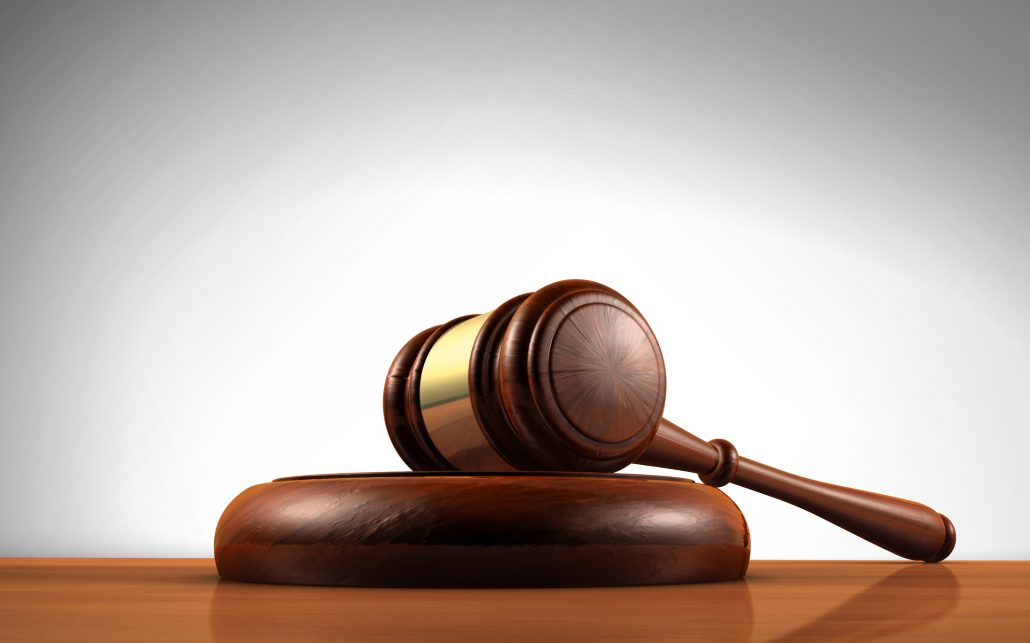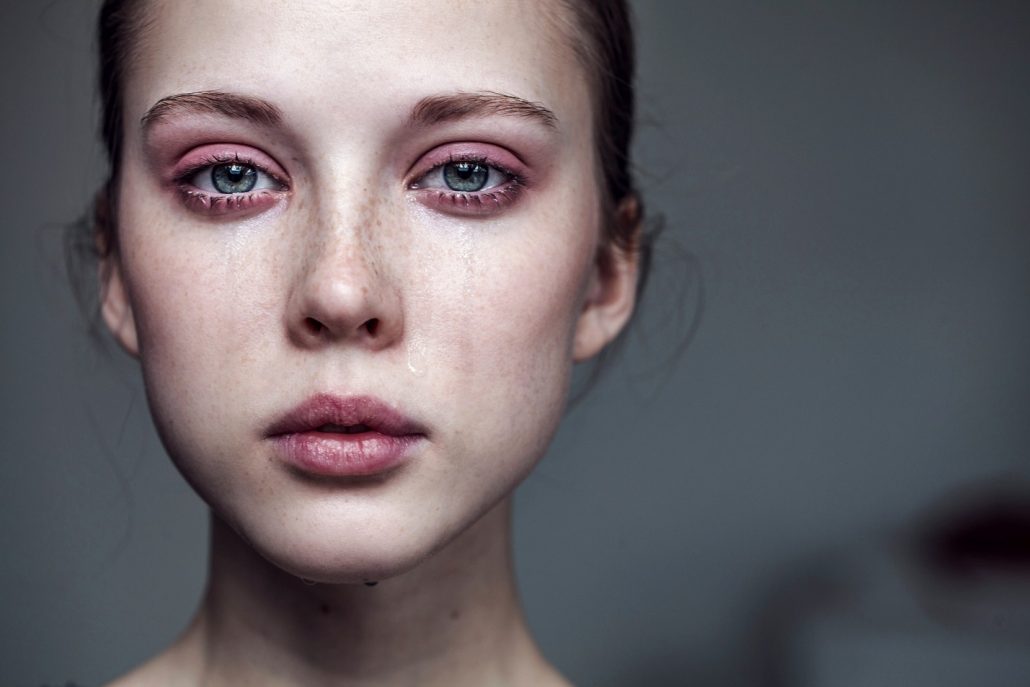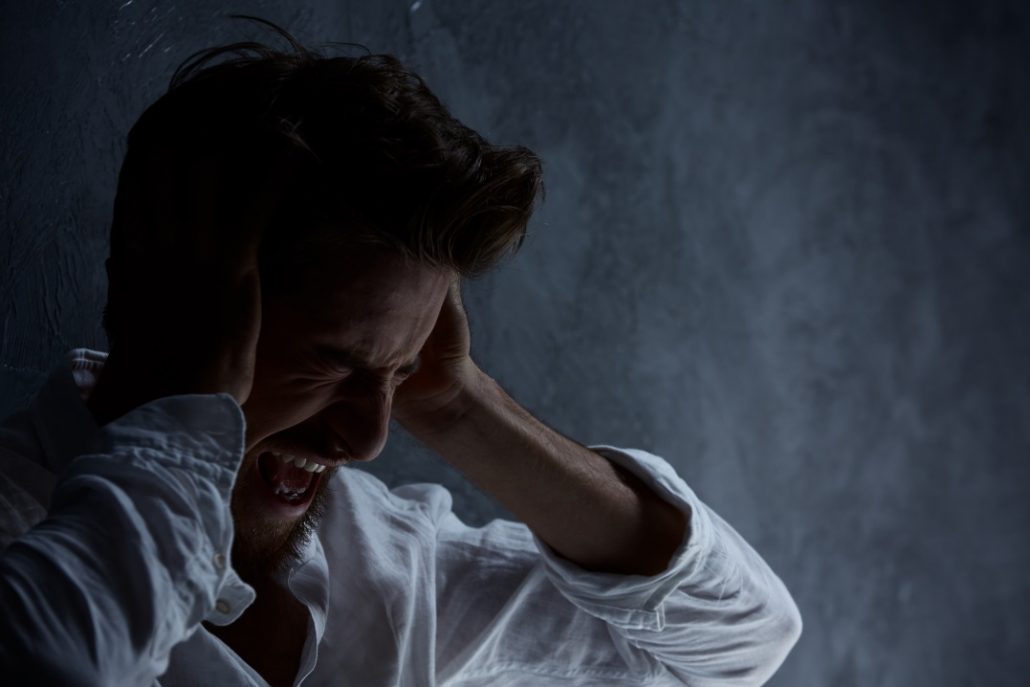by Justin Mckibben | Mar 19, 2019 | Addiction Treatment, Depression, Detox, Inpatient Treatment, Mental Health, News, Outpatient Treatment
Discrimination Through Denial of Coverage

Health insurance is probably going to be one of the great debates of this period in American history. There is already plenty of contention about how to properly provide coverage for those who need it. Some claim the changes made in the last decade have gone too far. Others argue it has not gone nearly far enough. Healthcare reform is a hot button issue in our world today. Needless to say, a big part of this conversation has to do with parity coverage for mental health. Now a new landmark court ruling is going to make a monumental difference for mental health and addiction treatment insurance coverage.
Simply put, the largest behavioral health care company in America has been denying coverage to some of its most vulnerable members to save money. And now, a federal court decision may put more of a spotlight on insurance companies.
Wit v. United Behavioral Health
The case was brought in front of a federal court in Northern California against United Behavioral Health (UBH). UBH is a company that manages behavioral health services for UnitedHealthcare and other health insurers. The court found that UBH denied claims of tens of thousands of people seeking mental health and substance use disorder treatment. The company was using defective medical review criteria in order to reject claims.
In Wit v. UBH, over 50,000 individuals were reportedly denied coverage based on the flawed review criteria. 11 plaintiffs sued UBH on the behalf of these victims. One victim, in particular, is Natasha Wit. Natasha had been seeking treatment for several chronic conditions, including:
Wit was repeatedly denied coverage for her treatment, despite the fact she did have healthcare benefits that should have offered coverage. Her family ended up paying out nearly $30,000 for treatment. And they are just one of the thousands of families to face the same discrimination.
Looking at the Marks Against UBH
According to recent reports, United Behavioral Health has been failing its members in more ways than one.
Federal courts determined that UBH developed internal guidelines that were “unreasonable and an abuse of discretion” and “infected” by financial incentives designed to restrict access to care for those who should qualify for coverage. Essentially, UBH was manipulating internal guidelines to avoid providing coverage that members had every right to under the law.
For many of those struggling with substance use disorder, defective criteria for coverage can equate to a death sentence. When looking over the requirements set by UBH, it is no wonder why the courts say they are illegitimate.
Firstly, their medical-necessity criteria fail to provide coverage to those chronic and comorbid conditions. Generally accepted standards of care state these conditions should be effectively treated, even when those conditions:
- Persist
- Respond slowly to treatment
- Require extended or intensive levels of care
However, UBH set guidelines that only approve coverage for what they labeled “acute” episodes or crises. For example, only individuals who were actively suicidal or suffering from severe withdrawal could be considered for coverage.
In other words, for someone who struggled with substance use disorder or mental illness, you had to be knocking on death’s door to get a chance at treatment. The court found that these guidelines were not acceptable.
Furthermore, UBH fails to use national evidence-based guidelines for covering different levels of care for mental health and substance abuse treatment, such as:
These are guidelines that have been developed by clinical specialty nonprofit organizations.
Additionally, UBH’s guidelines improperly required reducing the level of care, even if the providers who were treating them recommended maintaining a higher level of care. So patients would be removed from more intensive residential treatment programs and pushing into some form of outpatient therapy, even if the specialists argued that they were not ready.
This is a big deal. Most recovery advocates and healthcare providers agree that insurance companies should not be the ones telling treatment providers how to care for their patients.
-
State Mandated Guidelines
Furthermore, some states have mandated specific guidelines for evaluating the medical necessity for behavioral health services. UBH was also found to have violated these requirements for reviewing substance use disorder claims as well.
The case against United Behavioral Health was filed under the Employee Retirement Income Security Act of 1974 (ERISA). This is a federal mandate that governs group health insurance policies through private employers. More specifically, ERISA requires insurance plan administrators to function in a fiduciary capacity when overseeing employee benefit plans. This includes coverage for mental health and substance use disorder treatment.
In Wit v. UBH, the court determined that UBH was in breach of its fiduciary duties by developing and employing faulty medical necessity criteria for behavioral health services. Therefore, the court alleges that UBH is in violation of its obligations under this federal law.
What Does this Mean for Addiction Treatment Insurance Coverage?
This case is exposing insurers for refusing care to people at serious risk of death by overdose or suicide. It is important to remember that UBH is not the only insurance provider trying to find ways around federal and state coverage guidelines. Given the nature of these violations, advocates believe that regulators should immediately start examining the market conduct of all healthcare plans across the country.
Judge Joseph C. Spero in Wit v. UBH also points out that the company was circumventing the Mental Health Parity and Addiction Equity Act of 2008, also known as the Federal Parity Law.
Parity law actually requires insurers to cover illnesses of the brain, such as depression or addiction, the same as illnesses of the body, such as diabetes or cancer. In his ruling on Wit v. United Behavioral Health, Judge Spero highlights an abundance of evidence that guidelines created by the UBH were designed to diminish the impact of the 2008 Parity Act in order to keep benefit costs down. In other words, it is clear that the company was actively trying to work around federal law in order to avoid providing coverage to people with mental illnesses and addictions.
For those in the mental health and addiction communities, this brings new awareness to the discriminatory practices of treating mental health conditions differently than physical conditions. The new hope is that insurance providers will understand the consequences of discrimination against those who need help. With so much going on in healthcare, the Federal Parity Law must be protected.
Far too many people suffering from mental health and substance use disorders never get the help that they need. The last thing we need in a country devastated by an opioid crisis and rising overdose death rates is to create more roadblocks to treatment resources.
Palm Healthcare Company believes that if our country is ever going to overcome the damage of the opioid epidemic, we have to offer more comprehensive treatment options to those who still suffer. Insurance companies should not be keeping people from the care they deserve. Prevention is important, but we also believe in taking care of those who are already in the grips of substance use disorder by offering compassionate and effective care. If you or someone you love is struggling, please call toll-free now. We want to help.
CALL NOW 1-888-922-5398
by Justin Mckibben | Apr 18, 2018 | Addiction, Anti-Social Personality Disorder, Anxiety Disorder, Depression, Dual Diagnosis, Mental Health, Mood Disorders, Post-traumatic Stress Disorder, Schizophrenia

(This content is being used for illustrative purposes only; any person depicted in the content is a model)
It is not so far-fetched to be told that someone whose life is consumed with drug or alcohol dependency can find themselves facing the emotional and mental fallout. When dealing with mental health issues, it is not rare for people to also struggle with substance use disorder. Co-occurring conditions such as these tend to feed off of each other, or even help create one another.
It is almost like when someone has high blood pressure, we are not surprised when they develop heart problems. Sometimes side effects and symptoms of one condition can nurture new ailments.
According to so researchers, there are some more common combinations of co-occurring disorders with addictions. So which addictions are most likely to co-exist with each mental health condition?
Here are 5 of the most common co-occurring disorders with addictions (not in any particular order):
-
Schizophrenia with Marijuana Addiction

One disorder that commonly co-exists with a substance use disorder is schizophrenia. The American Journal of Psychiatry released a study that suggests approximately half of all people with schizophrenia also have a substance abuse disorder.
But one substance stands out the most when looking at people living with schizophrenia- marijuana.
The exact cause of schizophrenia is unknown, but many suspect a combination of environment, genetics and altered brain chemistry and structure to all play a part. So it is unclear why people with schizophrenia would abuse marijuana. Especially since this drug typically produces many of the same symptoms these people experience when in the midst of a schizophrenic episode. Some of these symptoms include:
- Short-term memory problems
- Delusions
- Unusual or dysfunctional ways of thinking
- Difficulty beginning and sustaining activities
- Impaired executive functioning
While not all symptoms are the same for everyone, some of these more common symptoms definitely overlap between the two. While it may not be obvious why, research suggests it is pretty obvious that marijuana is most popular for people with schizophrenia.
-
Alcoholism and Anti-Social Personality Disorder

You might be surprised with this one because most people assume alcohol is most commonly matched with depression.
Anti-social personality disorder is easier to understand when one explains the concept of personality disorders in general.
To put it simply, a personality disorder is an enduring pattern of personal experience and behavior that deviates noticeably from the expectations of the individual’s culture, which leads to personal distress of impairment. So antisocial personality disorder (ASPD) is characterized by a tendency to disregard and even violate the rights of others. Symptoms can vary from egregious to outright dangerous. They include:
- Irritability
- Aggressiveness
- Lack of remorse
- Consistent irresponsibility
- Recklessness
- Impulsivity
- Deceitfulness
- Lack of stability in a job and home life
- Disregard for society and laws
- Violation of the physical or emotional rights of others
Often the more intense cases earn the titles of sociopathic or psychopathic.
Alcohol abuse very frequency co-occurs with other mental health disorders. However, according to the National Institute on Alcohol Abuse and Alcoholism (NIAAA), the disorder with the closest connection to alcoholism is anti-social personality disorder.
In fact, people who drink to excess on a regular basis are 21 times more likely to deal with ASPD when compared to people who don’t have alcoholism.
The NIAAA also states that both of these disorders typically develop early in life. However, alcoholism can actually make the underlying mental illness worse. Intoxication can lower an individual’s inhibitions, which makes their antisocial behaviors more prevalent. This may also lead to more dangerous manifestations of the disorder.
-
Anxiety Disorders and Cocaine Addiction

Cocaine is an extremely powerful narcotic stimulant, which gives users feelings of intense euphoria. However, the tradeoff is a very steep price to pay considering how dangerous this drug really is. Continued cocaine use typically leads to symptoms that essentially mirror an anxiety disorder, including:
- Restlessness
- Hallucinations
- Paranoia
- Insomnia
- Difficulty concentrating
- Aggression
Because cocaine is a stimulant, it speeds up and amplifies activity of the brain’s neurotransmitters. Certain neurotransmitters at higher levels induce anxiety. So anxiety is actually a symptom of cocaine use already. Cocaine use also has the potential to create psychotic episodes. Some people even experience severe mental symptoms as a result of use.
As a long-term effect of cocaine use, brain circuits are more sensitive while struggling to respond to natural stimuli, and the results are often related to mood and mental health. Statistics show that there is a very high risk of anxiety and cocaine abuse occurring together. Then if you already have an anxiety disorder, the risk becomes even higher that you will develop a severe emotional problem when using a drug like cocaine.
While the adverse effects of cocaine use can eventually fade for those able to achieve a long-lasting sobriety, sometimes the damage lingers. Those unusual thoughts and behaviors can continue even long after someone has given up the drug.
-
Prescription Opioid Addiction and PTSD

Post-traumatic stress disorder (PTSD) is a mental illness that takes hold in the aftermath of an intense and traumatic experience. Often, people who survive tragedies, war and other dangerous or life-altering events will experience PTSD.
In some circumstances, people will leave their experience with serious physical injuries, and often, those injuries are treated with prescription painkillers. This is just one way that prescription opioids have contributed to a huge epidemic that has been hurting America for the past several years.
Prescription opioids often boost feelings of pleasure and calm inside the brain, and sometimes people who have PTSD end up abusing these medications in order to experience euphoria and numb themselves to not just their physical agony, but also their emotional trauma. This can become an endless cycle of self-medicating. This is especially true with veterans. In fact, some research indicates that veterans with pain and PTSD are 3 times more likely to receive opioids compared to those without any mental health disorders.
It is true that having effective pain medications is very important to improve the quality of life for those with physical pain, especially chronic pain patients. However, mixing powerful opioids like prescription painkillers with PTSD can lead to tragic outcomes. With increasing rates of veteran suicides over the past several years, one can only image what impact the surging opioid crisis may have had on those struggling with PTSD.
-
Depression with Heroin Addiction

Throughout one of the worst drug epidemics in American history, heroin has been a driving force behind countless overdoses and skyrocketing death rates. Heroin isn’t just devastating physically, but also mentally and emotionally crippling. The connection between these adverse effects and depressive disorders is remarkable.
The allure of heroin is that is can make users feel an overwhelming sense of pleasure for a short time. However, long-time use of heroin can burn out the portions of the brain responsible for producing natural signals of pleasure, leaving them incapable of feeling good on their own without the drug. The drug alters brain chemistry and creates mood changes.
Advances in Psychiatric Treatment estimates that 48% of opioid users have experienced depression at some point in their lives.
Extended use of heroin can eventually cause a form of brain damage that leads to depression. Users can become physically incapable of feeling happiness unless the drug is present. Withdrawal symptoms from heroin can also exacerbate symptoms of depression. Many of them are actually overlapping symptoms, such as:
- Restlessness
- Irritability
- Slow thinking, speaking or body movements
- Loss of interests
- Sleep problems
- Physical pains
- Headaches
- Changes in appetite
The combination of depression and heroin addiction is incredibly common. Sometimes it can be difficult for people to tell which issue came first, but ultimately they can both be exceedingly debilitating, or even deadly.
Dual Diagnosis Treatment

Dual diagnosis means that a person is dealing with two medical conditions that are co-occurring. In regards to the field of drug addiction, dual diagnosis specifically means that someone is struggling with both substance use disorder and another mental or behavioral health issue. Sometimes it is because prolonged drug use has contributed to developing a mental health issue, while other times it is because someone has tried to self-medicate when facing a mental health issue.
Dual diagnosis treatment is so important because it provides the opportunity to treat both co-occurring disorders simultaneously. For those suffering with more than one disorder, it is not nearly as effective to focus on treating one while ignoring the other. Holistic healing is all about addressing every aspect of each individual to help them find success in every part of their life.
Palm Healthcare Company believes in providing holistic addiction resources to help treat not just the addiction, but also any other issue that could be holding you back from achieving a full life of lasting recovery. If you or someone you love is struggling, please call toll-free now.
CALL NOW 1-888-922-5398









